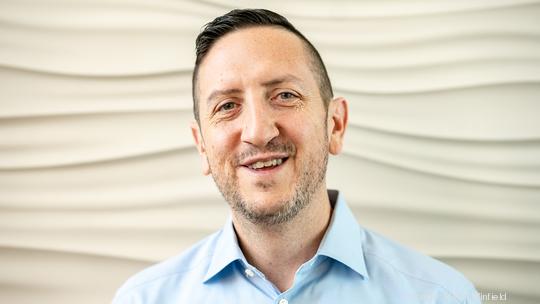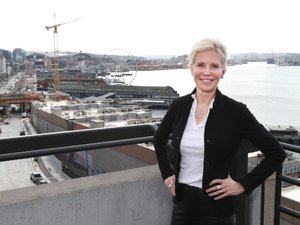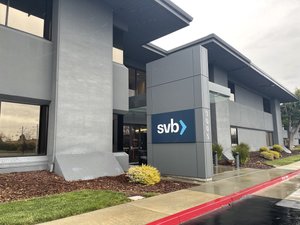
In the aftermath of the Silicon Valley Bank (SVB) fiasco, many startups are rethinking their approaches to banking. Count Shelf Engine among them.
"We are going to diversify," said Stefan Kalb, co-founder and CEO of Shelf Engine, a Seattle company that automates ordering for grocers. "Companies with over $1 million in the bank, they should have to diversify."
On March 10, the Federal Deposit Insurance Corporation seized SVB after a bank run forced the bank's collapse. Although the government has since made depositors whole, the initial panic is forcing the Seattle-area tech community to reconsider where to put capital.
Kalb found out about SVB's struggles on March 9 from his co-founder, Bede Jordan, and Shelf Engine quickly created a bank account with JPMorgan Chase to try and wire the company's deposits, which were 100% in SVB. The funds wouldn't wire out, and Kalb said the company would have had to shut down if the government only protected the insured amount of $250,000. The stress continued into the weekend, as Shelf Engine's leadership kept a close eye on what was happening with SVB.

Concerns over SVB's status began to mount on March 8, when the bank announced it needed to raise $2 billion to strengthen its balance sheet. The bank had invested in Treasury bonds which decreased in value due to higher interest rates. Panic spread the next day and into March 10 until the FDIC intervened.
The Federal Reserve, along with the FDIC and the Treasury Department, on March 12 announced SVB depositors would be fully backed. SVB had $175 billion in deposits at the end of last year.
According to Justin Fisher, private client group leader at Seattle-based accounting and consulting firm Moss Adams, the panic from the firm's clients that interact with SVB is now causing those clients to evaluate their financial positions. Moss Adams is advising clients to look at best practices from treasury departments at larger companies.
"How much cash do I actually need to maintain within a daily operating account, and what could I set aside for, call it strategic reserves that would potentially be at another institution? It could be in a brokerage account. I could invest that in a bunch of really high-quality tools," Fisher said. "It's probably a good opportunity for a lot of private businesses to really think about what is going on with their liquidity."
Kirby Winfield, the founding general partner at Seattle-based venture capital firm Ascend, said in an email to the Business Journal that even small startups need "a distributed and conservative approach to banking."

Matt Oppenheimer, co-founder and CEO of the Seattle-based remittance company Remitly, said in an email that it's important to have redundant banking partners for all services.
In an analyst note, Seattle-based financial data firm PitchBook Data noted startups and venture capitalists could start looking to non-bank lenders. A rush to raise debt in the wake of SVB's collapse, PitchBook added, could increase loan prices.
After all the stress around SVB's collapse, Kalb said he was at home when he heard the news that the government would make SVB depositors whole.
"I was able to sleep a lot better that night," Kalb said. "I probably lost a few years of my life there."








